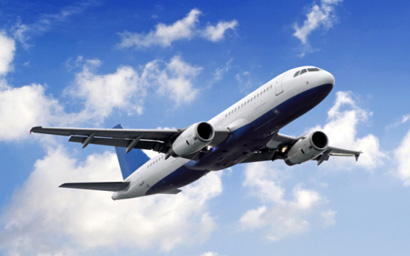Covid-19 caused widespread disruption to the airline industry – with the sector still yet to recover. Ali Ben Lmadani, CEO of aircraft investment manager ABL Aviation, looks at why aviation is still a viable alternative, and the environmental challenges the industry needs to overcome.
The rapid and continued rise of alternative strategies over the last 10 years is well documented. For many reasons – namely a low-yield environment, the increasing importance of portfolio diversification and the need for differentiation versus passive products – alternatives, or private markets more broadly, have shifted from the edge of the global investment landscape to its core.
As a result, infrastructure, real estate, private equity and private debt funds are at the heart of this conversation. Less documented, however, is the role of aircraft investments within a portfolio, and the structural drivers currently encouraging some of the world’s largest institutional investors to build exposure in the asset class.
Aircraft leasing plays a vital role in global aviation – it ensures demand is met through more capacity flexibility as air traffic ebbs and flows on a regional basis, allowing airlines to keep financial liquidity, fleet consistency and reduced maintenance costs.
While the benefits to airlines are clear, for investors, moveable assets provide a hedge against regional risks in the airline industry. Where fixed assets like real estate and infrastructure projects are at the mercy of regional economics and fluctuations in demand, when managed appropriately aircraft offer flexibility, as assets’ jurisdictions can be modified according to new demands over the 25-year-plus economic life, and the ability to move from market to market, airline to airline, dependent on demand.
Further, the small number of players active in the manufacture of new aircraft – a Boeing and Airbus duopoly – means pricing is homogeneous, transparent, and stable – allowing for accurate forecasting and predictable returns to those analysing risk.
This, along with strong industry regulation and U.S dollar denomination, results in stable and predictable cash flows through the lease term, backed by a strong credit and aircraft that tend to be relatively resilient to market stress.
In addition, aviation is a highly regulated industry where investor capital is often protected in two ways. First, it offers creditor protection through international agreements such as the Cape Town Convention or Section 1110 of U.S. Bankruptcy Code. Second, through operational control and maintenance of the aircraft to preserve collateral value.
As investors look at their risk profiles in a continuing uncertain environment, the benefits of a moveable asset base with stable pricing should not be overshadowed by better known but fixed-location private assets.
Timing is everything as air travel rebounds post-Covid
Of course, the unprecedented impact of Covid-19 on air travel cannot be ignored, though this testing period the leasing business has remained buoyant despite a detrimental impact to airlines themselves.
Most aircraft under the management of lessors are contracted under multi-year leases to customers across the world, so the relatively short-term downturn in global travel has not threatened the industry’s solvency. While credit risk remains a key consideration in the leasing business during market dislocations, the industry relationships held by a reputable asset manager allows it to quickly sell or release aircraft no longer required by an airline experiencing lower flight demand.
As vaccine rollouts in key markets maintain momentum, the aircraft leasing investment opportunity sits at an inflection point. As demand for aircraft rebounds as airlines reinstate pre-Covid timetables, there is a significant opportunity to enter a market at the right time in the cycle.
Making the airline industry sustainable
There are clear challenges faced by the airline industry when it comes to environmental footprint that cannot be ignored.
While manufacturers continue to innovate to meet the critical need for more carbon-neutral travel solutions, the specialist sector expertise and global network of aircraft asset managers allow investors to ensure existing fleets are responsibly managed. A focus on investments throughout the asset cycle also allows investors to gain exposure to the cutting edge, environmentally conscious vehicles while doing more with what we already have, preventing the wastage that would occur if the mid-life sector was underinvested.
Rightly, alternatives are playing a vital, increasing role in the portfolios of global institutional investors. As inflation creeps back onto the radar and the hunt for yield and diversification only intensifies, a strong outlook for aircraft investments should not be overlooked.
*Ali Ben Lmadani is CEO of ABL Aviation
© 2021 funds europe





